International
Noboa insists on a new state of emergency in Ecuador after the previous two were invalidated
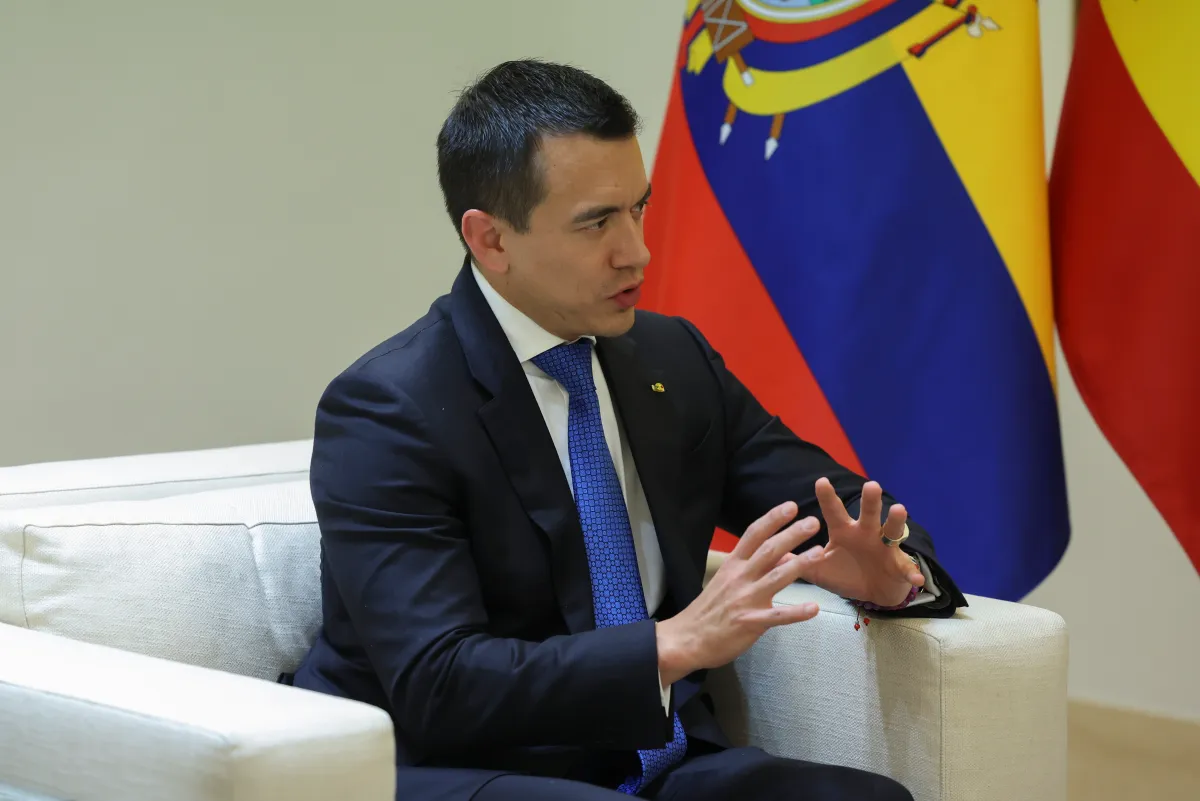
The president of Ecuador, Daniel Noboa, again decreed on Tuesday for the third time a state of emergency in part of the country’s territory, after the previous two declarations were revoked by the Constitutional Court, considering that the measure was not sufficiently argued.
This new state of emergency for 60 days covers six provinces (Guayas, Los Ríos, Manabí, Orellana, Santa Elena and El Oro) and the municipality of Camilo Ponce Enríquez, a mining enclave in the southern Andean province of Azuay where the mayor was murdered in April and this week eight bodies with signs of torture were found in a mining concession.
In these territories the measure contemplates the suspension of the rights of inviolability of the domicile, inviolability of correspondence and freedom of assembly, according to the decree, which extends for more than 50 pages to support this declaration.
It also implies the mobilization of the Armed Forces and the National Police to carry out operations against organized crime gangs, to which Noboa has declared “war” since the beginning of the year by raising the fight against them to “internal armed conflict,” with which he has come to classify them as terrorist groups and non-state belligerent actors.
The Presidency of Ecuador stressed in a statement that on this occasion the decree of the state of emergency “has the support of the World Association of Jurists (WJA, for its acronym in English),” in view of the analysis of the legality of the measure that must be carried out again by the Constitutional Court.
On this occasion, the decree of the state of emergency establishes that the Constitutional Court may have access to secret reports from the Government authorities in case they need to review them to evaluate the relevance of the measure, without this implying the declassification and public access of them.
The Constitutional Court validated the first state of emergency decreed by Noboa at the beginning of the year and that was in force for 90 days throughout the country, broadcast as a result of a spiral of violence by criminal gangs that included simultaneous riots in several prisons in the country with about 200 hostages and the taking of the TC Television channel by a group of armed men during a live broadcast.
Subsequently, Noboa issued two focused states of emergency that covered several provinces, but in both cases the constitutunal court considered that “the facts mentioned in the decree do not specifically constitute the cause of internal armed conflict.”
The magistrates stressed that, for the most recent decree, the argument of the internal armed conflict “was the only (reason) invoked by the President of the Republic.”
“It should be remembered that, due to its important legal implications, both the reiterated jurisprudence of this Court and international law, have established that in order to configure the cause of internal armed conflict, two parameters must be considered that address the seriousness of the situation of violence,” the Court said.
Between those two parameters cited by the court is “the level of organization of the armed group and the intensity of hostilities.”
“However, in the decree and in the reports that support it, no indications related to these parameters are mentioned,” he concluded.
However, the Court clarified that “the finding that the declaration of a state of emergency does not meet the requirements provided for in the Constitution does not imply a lack of knowledge of the serious acts of violence and the complex circumstances that the country is going through.”
He also recalled that his decision does not affect the powers provided for in the ordinary legal system for the Executive to use the Armed Forces to fulfill its constitutional mission, since the Ecuadorians approved by a large majority in a referendum held in April that the military support the Police in operations against organized crime without the need to issue states of emergency.
Organized crime gangs, mainly dedicated to drug trafficking, are credited with the wave of violence that plagues Ecuador and that has led it to be the first country in Latin America in homicides per capita, with a rate of about 47.2 per 100,000 inhabitants in 2023, according to the Ecuadorian Observatory of Organized Crime (OECO).
Central America
Peru’s ambassador highlights “historic bonds” with El Salvador on Independence Day
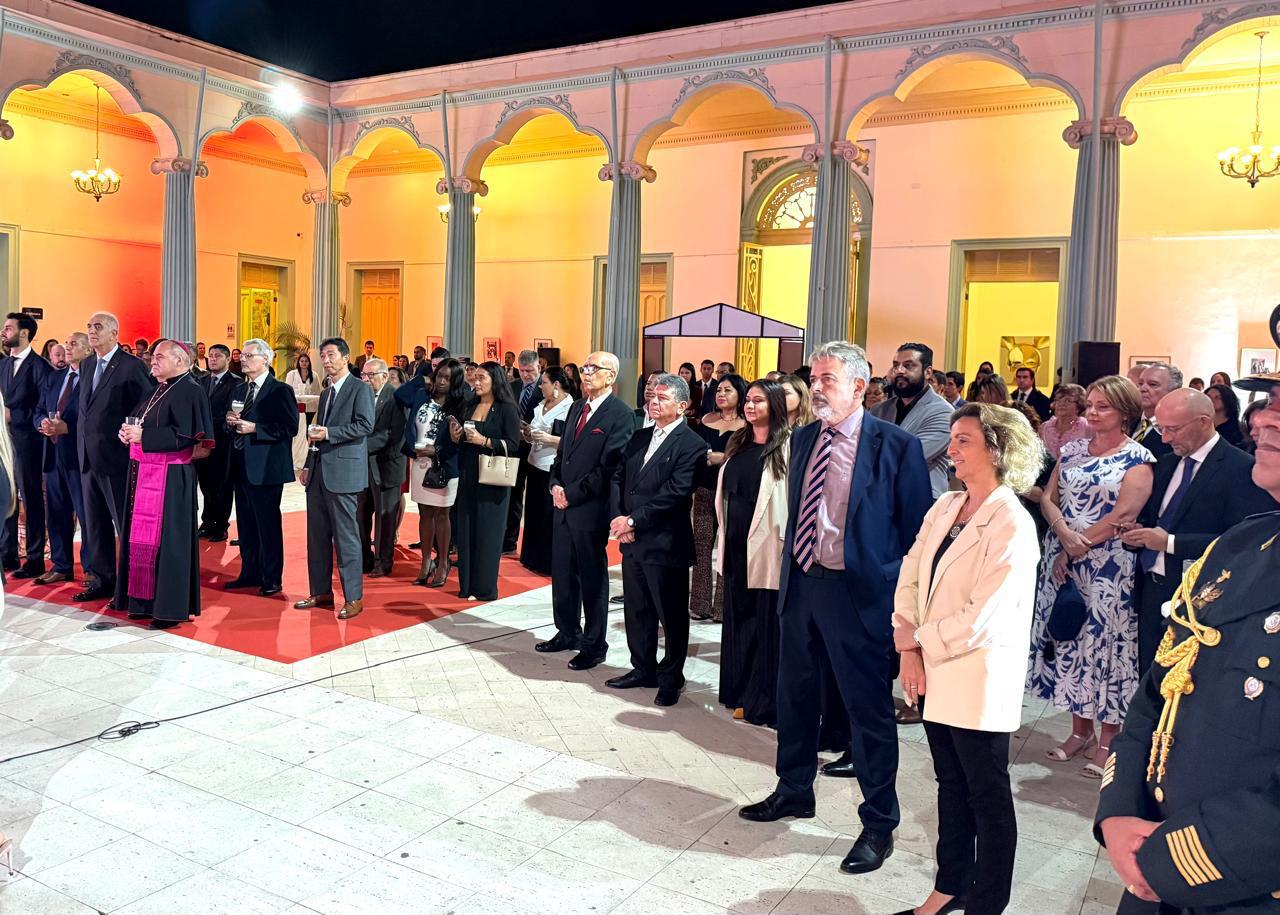
The Ambassador of Peru to El Salvador, Jorge Rosado La Torre, reaffirmed on Monday evening—during Peru’s Independence Day celebration—that Peru “maintains historic ties of friendship, cooperation, and mutual respect with El Salvador” and acknowledged “its firm willingness to continue deepening our bilateral relations.”
Rosado La Torre highlighted the strong relations between El Salvador and Peru at the ceremony held at the Palacio Tecleño de la Cultura y las Artes to mark the 204th Anniversary of Peru’s Independence, proclaimed on July 28, 1821.
“El Salvador and Peru share fundamental principles: respect for the rule of law, the promotion of human rights, multilateralism, and the defense of peace and democracy,” the diplomat said during the event, which was attended by diplomatic authorities, Salvadoran officials, members of the Peruvian community, and friends of Peru.
The ambassador also emphasized that Peru and El Salvador “are also united by cultural, social, and human bonds, which grow stronger every day through joint work and the connection between our societies.”
Rosado La Torre noted that Peru’s Independence Day “not only allows us to celebrate a national milestone but also to strengthen the bonds of brotherhood and cooperation between our peoples.”
International
U.S. and China push for extension of tariff truce after “constructive” talks in Sweden
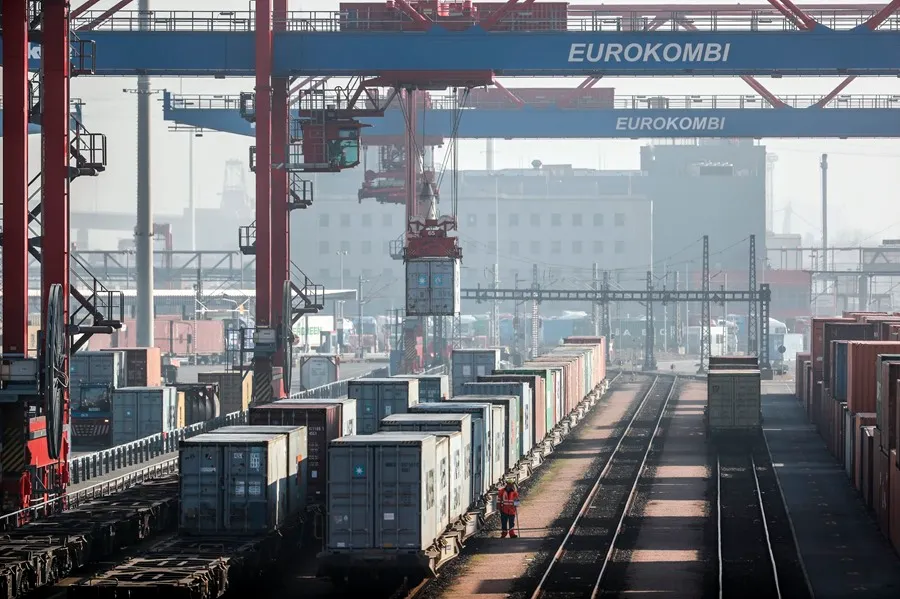
The United States and China “will continue working” to secure an extension of their tariff truce, China’s international trade representative Li Chenggang said Tuesday, according to state news agency Xinhua.
Li’s comments followed negotiations in Sweden with a U.S. delegation led by Treasury Secretary Scott Bessent, describing the talks as “frank, in-depth, and constructive,” Xinhua reported.
The discussions aimed to prolong the 90-day pause negotiated in Geneva in May—set to expire on August 12—which temporarily ended the mutual retaliatory measures that had triggered punitive tariffs. The truce lowered customs duties on U.S. and Chinese goods from 125% and 145% respectively, to a more moderate 10% and 30%, on top of existing tariffs, ahead of Donald Trump’s return to the White House earlier this year.
The U.S. and Chinese delegations—led by Treasury Secretary Scott Bessent and Vice Premier He Lifeng—also exchanged views on key economic and trade issues and pledged to maintain close communication, Li added.
The talks in Sweden came at the start of a crucial week for Trump’s trade policy, as tariffs on most of the United States’ main trading partners are set for a sharp increase on August 1.
International
Trump administration opens civil rights probe into duke university over alleged bias
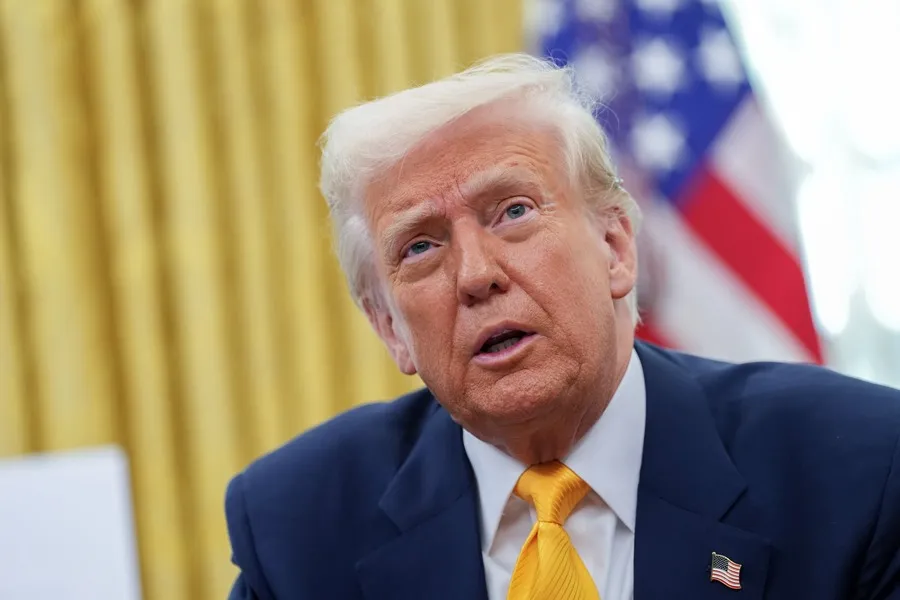
The administration of U.S. President Donald Trump launched a formal investigation on Monday into Duke Universityand its law journal over alleged “discriminatory practices.”
The Department of Education’s Office for Civil Rights (OCR) opened the probe following complaints that Duke’s law review selection process allegedly awarded extra points to applicants who “referenced their race or ethnicity in their personal statements,” according to a statement from the department.
Based in North Carolina, Duke is the latest academic institution to come under scrutiny from the Republican administration, which has escalated an ideological battle against universities.
Trump has repeatedly claimed that higher education institutions have been “captured by the far left” and has taken action to sanction and ban Diversity, Equity, and Inclusion (DEI) programs aimed at addressing social inequities in admissions and faculty hiring.
Education Secretary Linda McMahon and Health and Human Services Secretary Robert F. Kennedy Jr. sent a joint letter to Duke’s leadership expressing concerns about the use of “racial criteria in hiring, admissions, and scholarship awards,” particularly within the university’s health system.
“I’m proud to partner with Secretary Kennedy to ensure Duke commits to excellence, integrity, and respect for the law in shaping the nation’s future leaders,” McMahon said.
“Granting illegal preferential treatment based on immutable characteristics is an affront not only to civil rights laws but also to the meritocratic nature of academic excellence,” she added.
The decision to investigate Duke comes just days after Columbia University agreed to pay a $200 million fine to settle accusations by the Trump administration of alleged antisemitism.
-

 International5 days ago
International5 days agoChevron cleared to pump oil in Venezuela again, but Maduro won’t see the profits
-

 International5 days ago
International5 days agoClaudia Sheinbaum condemns Gaza famine and urges peace between Israel and Palestine
-
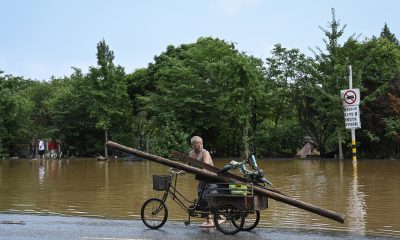
 International2 days ago
International2 days agoFour dead, thousands flee as floodwaters ravage Northern China
-

 International2 days ago
International2 days agoMultiple fatalities reported in Nevada Resort shooting as Police detain gunman
-
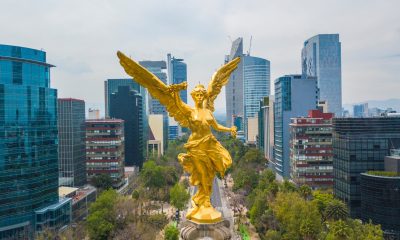
 International4 days ago
International4 days agoMexico launches electronic visa system to modernize and speed up immigration procedures
-
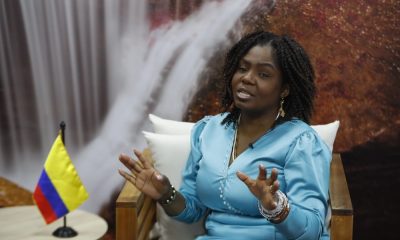
 International4 days ago
International4 days agoColombian Vice President Francia Márquez accuses government of sidelining her role
-

 International3 days ago
International3 days agoMexico City becomes ‘forced waiting point’ as migrant crisis deepens
-
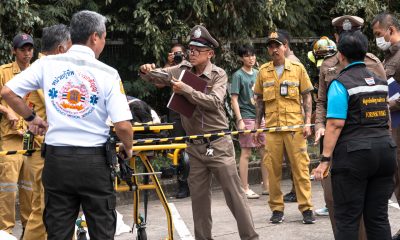
 International2 days ago
International2 days agoFive security guards killed in mass shooting at Bangkok Market
-
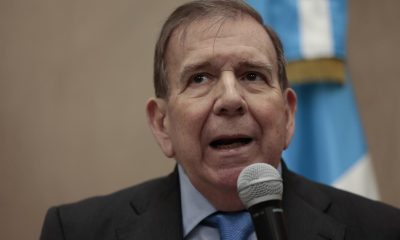
 International3 days ago
International3 days agoOpposition still rejects Maduro’s Victory as anniversary of 2024 vote nears
-
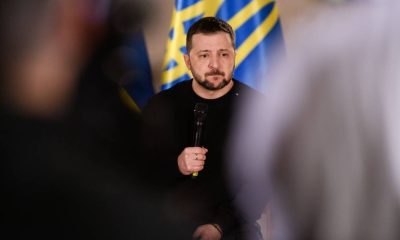
 International2 days ago
International2 days agoZelensky praises Trump’s ‘clear stance’ on Russia as ultimatum deadline tightens
-
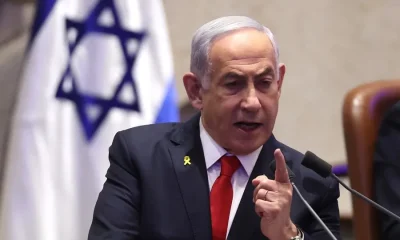
 International2 days ago
International2 days agoNetanyahu cites historic success against Iran as he pledges relentless Gaza campaign
-
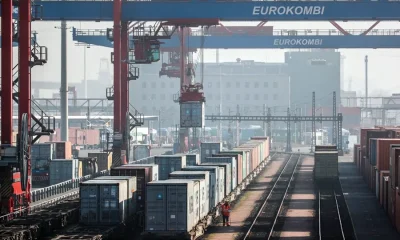
 International21 hours ago
International21 hours agoU.S. and China push for extension of tariff truce after “constructive” talks in Sweden
-
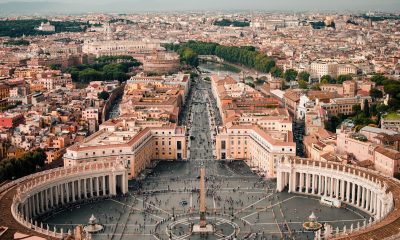
 International2 days ago
International2 days agoVatican reports $72M profit in 2024, boosted by real estate and investments
-

 International21 hours ago
International21 hours agoMedvedev warns Trump after new Ukraine ultimatum: ‘Russia is neither Israel nor Iran’
-
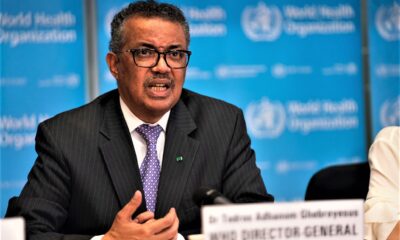
 International2 days ago
International2 days agoHepatitis D declared carcinogenic as WHO urges action to end global crisis
-
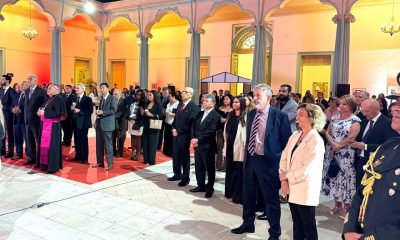
 Central America21 hours ago
Central America21 hours agoPeru’s ambassador highlights “historic bonds” with El Salvador on Independence Day
-
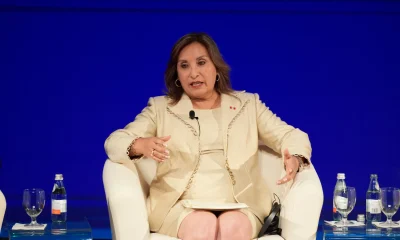
 International2 days ago
International2 days agoPeru’s president under fire as she promises crackdown on organized crime
-
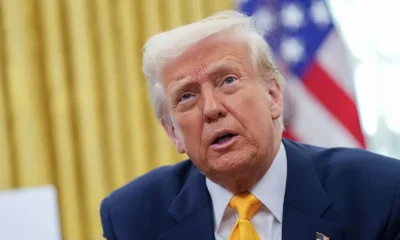
 International21 hours ago
International21 hours agoTrump administration opens civil rights probe into duke university over alleged bias
-
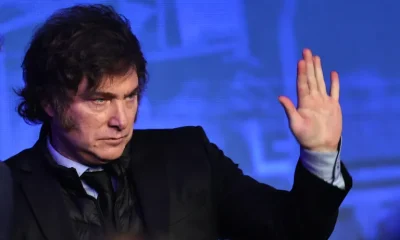
 International21 hours ago
International21 hours agoArgentina requests reentry into U.S. Visa Waiver Program during DHS chief’s visit
-
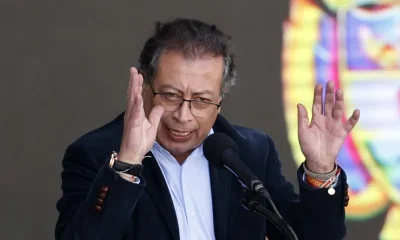
 International21 hours ago
International21 hours agoPetro accuses Marco Rubio of undermining colombia’s sovereignty over Uribe comments






















